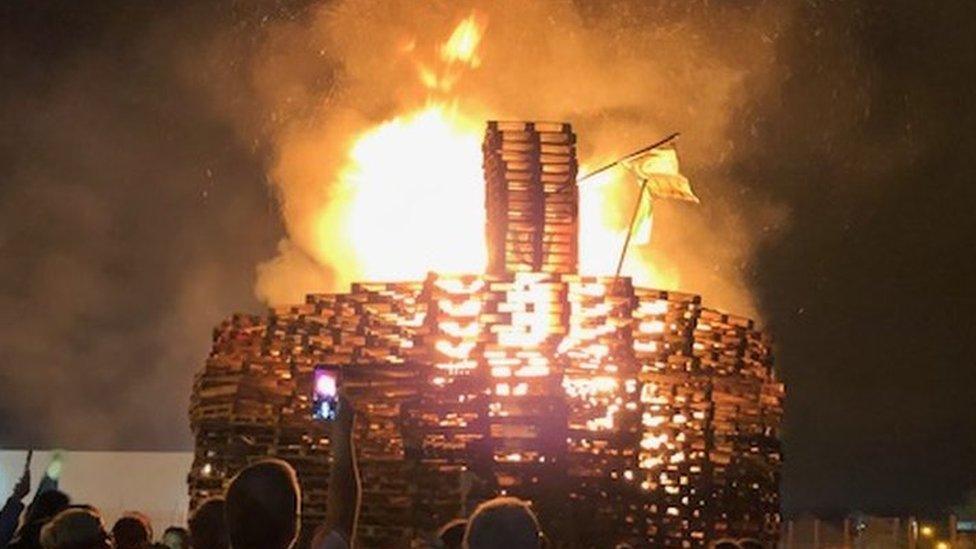Bonfire regulation proposals agreed by Belfast City Council
- Published
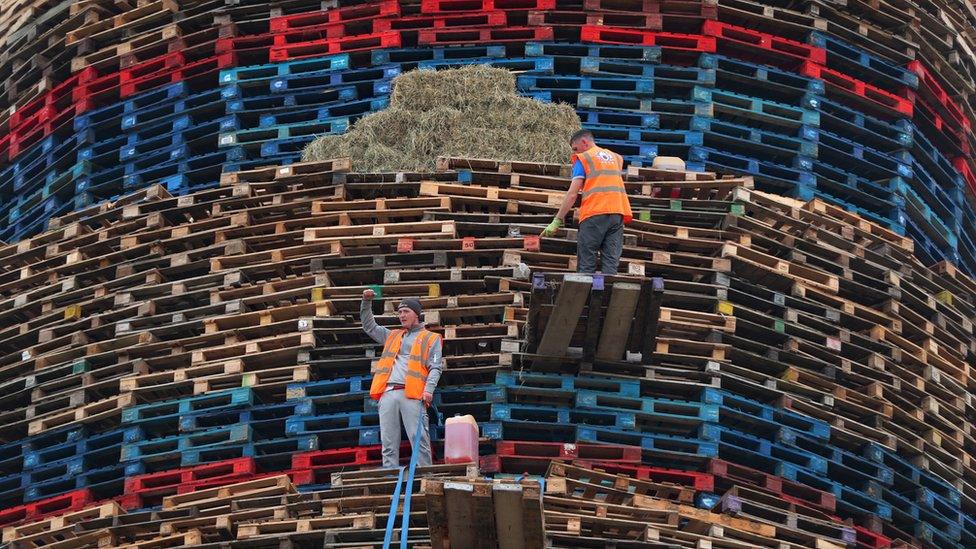
Proposed new conditions include public liability insurance and a commitment to ensure no burning of any toxic materials
Belfast City Councillors have passed a motion which seeks to introduce new regulations around bonfires on council land.
The proposed new policy will now go before a full council meeting early next month for ratification.
It outlines a number of conditions which must be included on a bonfire application.
The proposal states that permission should be requested by "a constituted organisation".
A risk assessment must also be provided and agreed with the Police Service of Northern Ireland (PSNI), the Fire Service and the Council.
Other proposed conditions include public liability insurance, an event management plan and a commitment to ensure no burning of any toxic materials.
The proposal, which has been adopted by the Strategic Policy and Resources Committee, was introduced by Sinn Fein and supported by the SDLP.
It was opposed by Unionists and the Alliance party.

Under the new rules, the display or burning of offensive materials like flags, emblems, effigies and posters will not be permitted
The motion also states that an application must include an entertainment licence, details of consultation with local residents and a site cleansing plan.
It also declares that the display or burning of offensive materials such as flags, emblems, effigies and posters will not be permitted and that any breaches of this requirement would impact upon future applications.
It concludes that "any failure to follow an open, transparent, robust and successful application procedure for a bonfire will result in the Council requesting the support of the PSNI to provide protection to our contractors for the removal of materials"
Applications must be received three months before a bonfire, according to the proposal.
Nine councillors supported the motion, eight voted against and one councillor, from the Green Party, abstained.
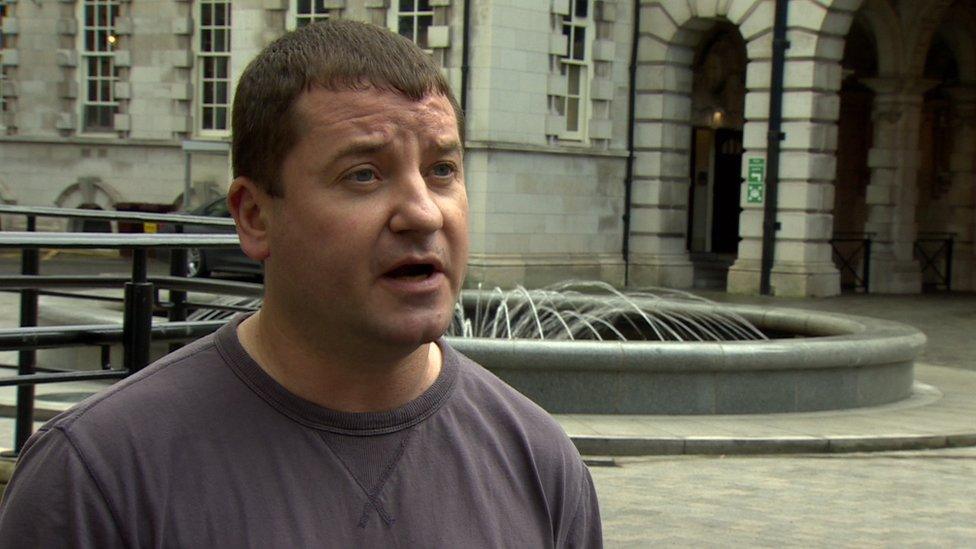
Belfast city councillor Ciaran Beattie said a framework is needed that allows people to celebrate their cultures in a safe way
Belfast city councillor for Sinn Fein, Ciaran Beattie, said it was "a very positive day for the citizens of Belfast".
"These illegal bonfires have been causing problems for many years," he said.
"This year we saw a young lad seriously injured at a bonfire site so I think it's timely that this council takes a decision to regulate bonfires."
He said some of the reasons bonfires are illegal are due to "theft materials, illegal transportation of waste without a license and dumping of materials on site, criminal damage and antisocial behaviour".
"We need to put a framework in place that allows people to celebrate their cultures in a positive, safe and legal way, in a process where people can apply and get permission to have bonfires on council assets."
'Unworkable system'
Alderman Brian Kingston, DUP group leader in Belfast city council, opposed the motion strongly during the debate.
"We're astonished that this motion did go through at committee, it is yet to go through full council so we'll see what happens at council," he said.
He said it was a "totally unrealistic motion from Sinn Fein" and would be "an unworkable system to have in place".
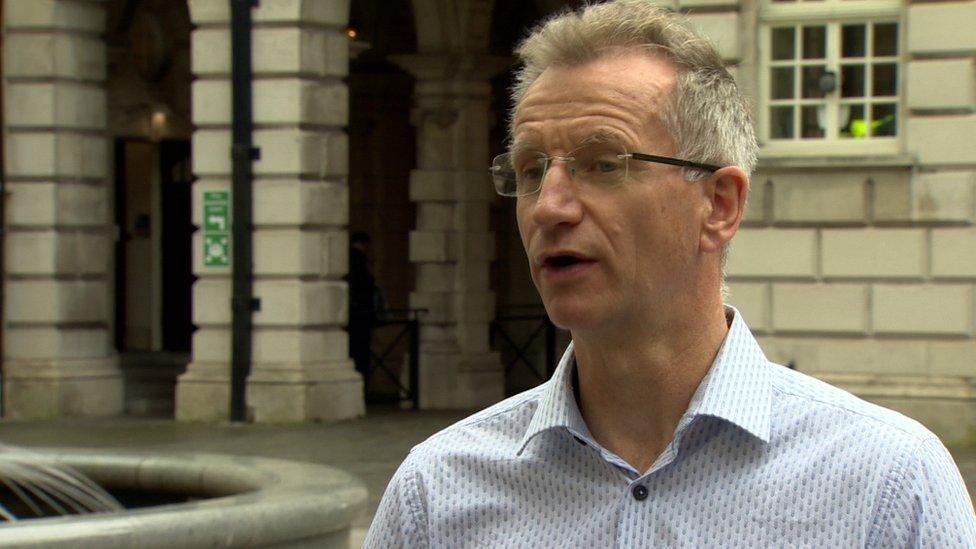
DUP Alderman Brian Kingston said the motion would increase tensions
"It would undermine the positive work that council officers are doing at local community level in resolving difficulties around bonfires," he said.
"The direction of travel is that we had less problematic bonfires this year."
He said Belfast city council intervened in one case this year to remove material where there was a risk to property.
"This Sinn Fein motion seems to be designed to increase tensions around bonfires rather than help the positive work that council officers and communities are doing together."
- Published11 July 2023
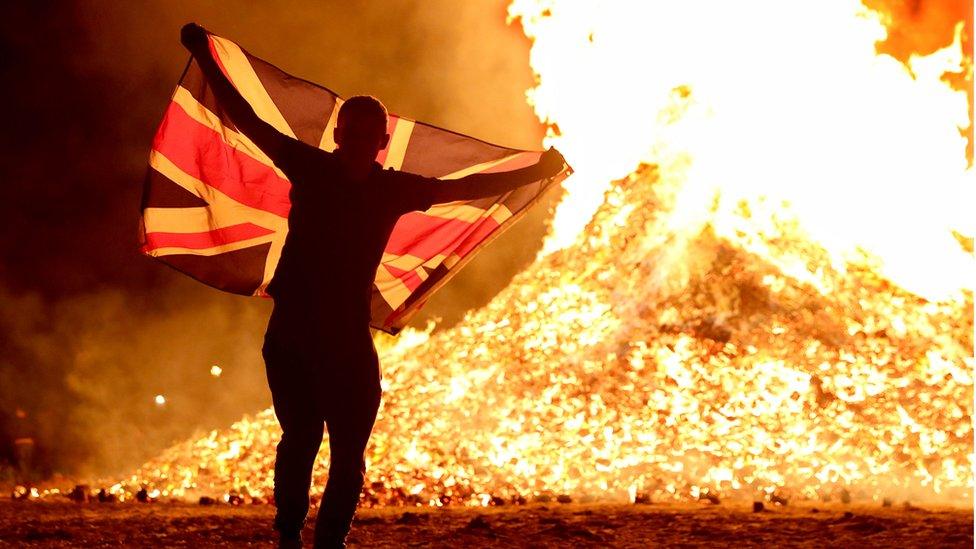
- Published2 September 2021
